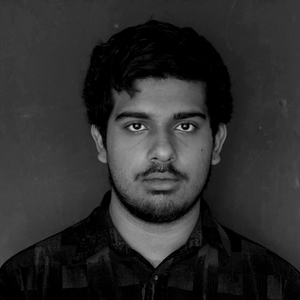Rafi: “Dirty Sprite 2” Review
Courtesy of Freebandz and Epic Records
Future released DS2 on July 17th. He released three mixtapes in the last ten months.
Dirty Sprite 2 is the conclusion to Atlanta rapper/songwriter Future’s epic run of mixtapes over the past ten months. He dropped “Monster” last Halloween, followed by “Beast Mode” and “56 Nights” in 2015. In less than a year, enough Future hits were given to keep every party lit into 2016 and beyond. DS2 is more impressive for doubling down on the values that made those tapes great. He’s breaking his record while running his victory lap.
For those unfamiliar with his work (go listen to the three mixtapes) his usual themes are strippers, sex, money, drugs — both the distribution and seemingly infinite consumption of. DS2 is no different. Like codeine into a cup of Sprite, he slips into the murky depths of his character.
Future raps the same way a seer predicts fate. He flows from subject to subject like an inner monologue. His most wrenching lines often come like epiphanies; all backed to hard-hitting trap drums. One can choose to take this album as typical trap music, but the hidden questions that lurk in Future’s stories take it to the next level.
Future’s subversiveness comes through in songs like “Rich $ex.” It’s one of the brighter moments of the album. “Baby, let’s go and have rich sex,” Future sings. “You can keep your Rollie on when I get to it … When you look down, see my chains on.” It’s dressed as a happy song about sex. But the emotional connection of sex is displaced by the attraction to icons of wealth. Is Future having rich sex because wearing the chains makes it better or because he’s incapable of a real connection?
In “Groupies,” a rabidly aggressive declaration that Future is “back to f*cking (his) groupies.” He ends each verse by telling said groupie(s), “You really know me, nobody can love me like you.” The vulnerability is relatable. Future makes sense — in a way only he can — of how a disposable groupie, who is a nonentity even in singular form, can know you better than anybody else.
Rapping about life’s woes through the lens of the modern trap scene is what makes him accessible. Even if the only brick you know of is the red kind that builds your house wall, you understand Future when he says “I disguise pain when I make it rain.”
His presence is captivating on every track. It’s an achievement considering the instrumentals are characters of their own. Each one is pristine — serious props to the production/mastering team of DS2. The beats are gritty compositions. Some highlights are the siren that whines during Future’s first verse in “Groupies,” the industrial grating that makes up most of “I Serve the Base,” and the distorted plucking throughout “Where Ya At.”
The beats in the album are a sample of what cutting-edge Atlanta trap sounds like. Given the album’s DNA, it makes sense. Regular Future collaborators Metro Boomin and Southside make up most of the production credit.
The recipe for success Future refined through the “Monster,” “Beast Mode” and “56 Nights” trio is perfected in DS2. His ignorant lyrics are turnt to the max. Future described it as an album of music for the streets in his “Like I Never Left” documentary. “I just f*cked your b*tch in some Gucci flip-flops” are the album’s first lines — he wasn’t lying. Excess oozes through DS2.
DS2 is concise. There are no skits like on “Monster” and “56 Nights.” There’s also no mention of DJ Esco, the coolest DJ in the world, or something. It speaks to the focus on showing off the music. Future’s consistency over the previous three mixtapes, and now, DS2, is something to be admired. His strategy has paid off. DS2 is expected to sell 125 to 135 thousand copies in its first week. It’s good to see Future reap the rewards of sticking to his sound. “Honest,” his previous album, which compromised his music with a mistimed pop infusion, only sold 53K its first week.
It’s also something that can’t be done again. The arc that Future’s character began last Halloween comes to an end. His music needs to take a new turn with his next project or it’ll be stale. This album was missing an emotional ballad like “Codeine Crazy” or “March Madness,” two of Future’s best songs that could also work as the beginning of a direction for his next project. But who knows? If anything, he has proven himself to be adaptable. Future is here, and he’s here to stay.
Momin Rafi is a sophomore newspaper and online journalism major. You can email him at mrafi@syr.edu or reach him on Twitter at @Mominat0r.
Published on July 23, 2015 at 5:56 pm





